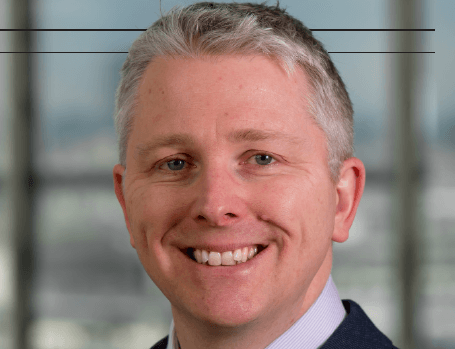

IN 1688, Edward Lloyd’s London coffeehouse was as a hub for information regarding shipping. The evolution of Lloyd’s over the next three centuries consolidated its status as the center of the global insurance market.
But despite its storied history, Lloyd’s is hardly encumbered by its past. On the contrary, the Lloyd’s team works tirelessly to ensure it remains at the forefront of innovation, and Trevor Maynard heads up the team charged with those endeavors.
“We’re trying to create an environment where innovation can flourish in the Lloyd’s market,” Maynard says.
One of his innovation team’s chief responsibilities is horizon-scanning, and that has produced a great deal of information on emerging risks.
“We’ve done reports on liability exposure management, which is a really tough problem in the insurance industry,” Maynard says. “We can do natural catastrophe exposure management very easily now – there are lots of great models – but liability is a lot more difficult.”
This year, Lloyd’s published a report, in collaboration with Arium, that set out a new data-driven methodology allowing insurers and reinsurers to model liability exposure probability across their entire portfolios – something the insurer says was previously not possible.
Maynard also points to the efforts of Lloyd’s data lab team in exploring new technologies. “They’ve been looking at various proofs of concept, [focusing on] things like artificial intelligence,” he says.
In addition to the work Lloyd’s itself is undertaking, Maynard says the insurer encourages the market, giving other companies space to lead innovation.
“We’re trying to understand how the new economy is going to function in a highly digitized and connected world,” he says, “and then thinking about the products the insurance industry needs to offer in such an environment.”
Key concerns
In terms of emerging risks, Maynard cites climate change – a risk he’s been watching closely for the past 12 years – as the one that concerns him most.
“The world is rapidly changing, and you’ve got perils that have been known about for years, but they’re becoming more destructive,” he says. “Climate change is affecting the strength of hurricanes, we firmly believe. Although we have the Paris Agreement, it still doesn’t go far enough. And, of course, it assumes everyone will do the things they said they would do.”
Referencing the pledge in the agreement to cut greenhouse gas emissions with a view to capping global warming at 3 degrees Celsius, Maynard says, “We really need to get it down below 2 degrees to avoid some very nasty effects – starting now, but getting worse and worse this century.”
Naturally, cyber risk is also a major focus for the innovation team at Lloyd’s. “Cyber insurance is one of the big ones that we’ve been involved in in recent times,” Maynard says. “Lloyd’s is certainly one of the largest providers of cyber insurance in the world, and if you look at our list of outputs, we’ve produced a whole string of work on cyber to try to quantify the risk.”
That work includes the 2015 Business Blackout report, a joint effort with the University of Cambridge’s Centre for Risk Studies, which analyzed the insurance implications of a major cyberattack on the US power grid. It estimated the total impact on the US economy of such an attack would be $243 billion, but it could hit more than $1 trillion in the most extreme version of the scenario.
More recently, research by Lloyd’s and Cyence detailed that a cyberattack could potentially trigger $53 billion of economic losses – roughly equivalent to a natural catastrophe along the lines of 2012’s Superstorm Sandy.
“The key thing that came out of that report was how much of [the risk] was not insured,” Maynard says. “It was only about 10% that was insured.”
Insuring drones is another subject that has been occupying the attention of Maynard and his team, along with the risks associated with the sharing economy.
“We’re also looking at new ways of working – it’s not just about products,” he says. “For example, electronic placement has been a big project to try to streamline the placement of risk at Lloyd’s, and that’s now up and running. We’ve got 90 underwriting firms on there and 25 brokers. So people are starting to adopt it, and many risks have been bound through this live system. That’s a pretty big innovation and something that we hope will continue to grow.”
The future of innovation
Looking ahead, Maynard says Lloyd’s has a lot in the pipeline.
“It’s exciting times,” he says. “We think it’s very important as a group that we horizonscan, because if you want to be ready for a society in five to 10 years, you need to start changing now and anticipating it.”
The Internet of Things is a major focus for Lloyd’s, which plans to publish a report next year devoted to the subject. Maynard’s team will also pursue further work around the sharing economy and look at developments in the mining industry.
“They’re innovating themselves,” he says, “and we think it’s useful to draw the attention of the market to that.”
And then there’s the challenge of the insurance gap. “For a lot of countries in the world, when disaster strikes, only a tiny fraction of that is insured, particularly in developing countries,” Maynard says. “I’d personally love to see a bigger insurance market globally providing protection to those countries because, if anything, they have even more to gain through risk transfer. Sometimes their economies are set back a decade or so by a major disaster, whereas if they had insurance, they would be up and running again and continuing to develop straight afterwards.”
For Maynard, staying on top of these issues and designing solutions to address them is all part of ensuring that the Lloyd’s name remains synonymous with insurance three centuries from now
Maynard has a master’s degree in pure mathematics from the University of Warwick and a PhD in statistics from the London School of Economics
